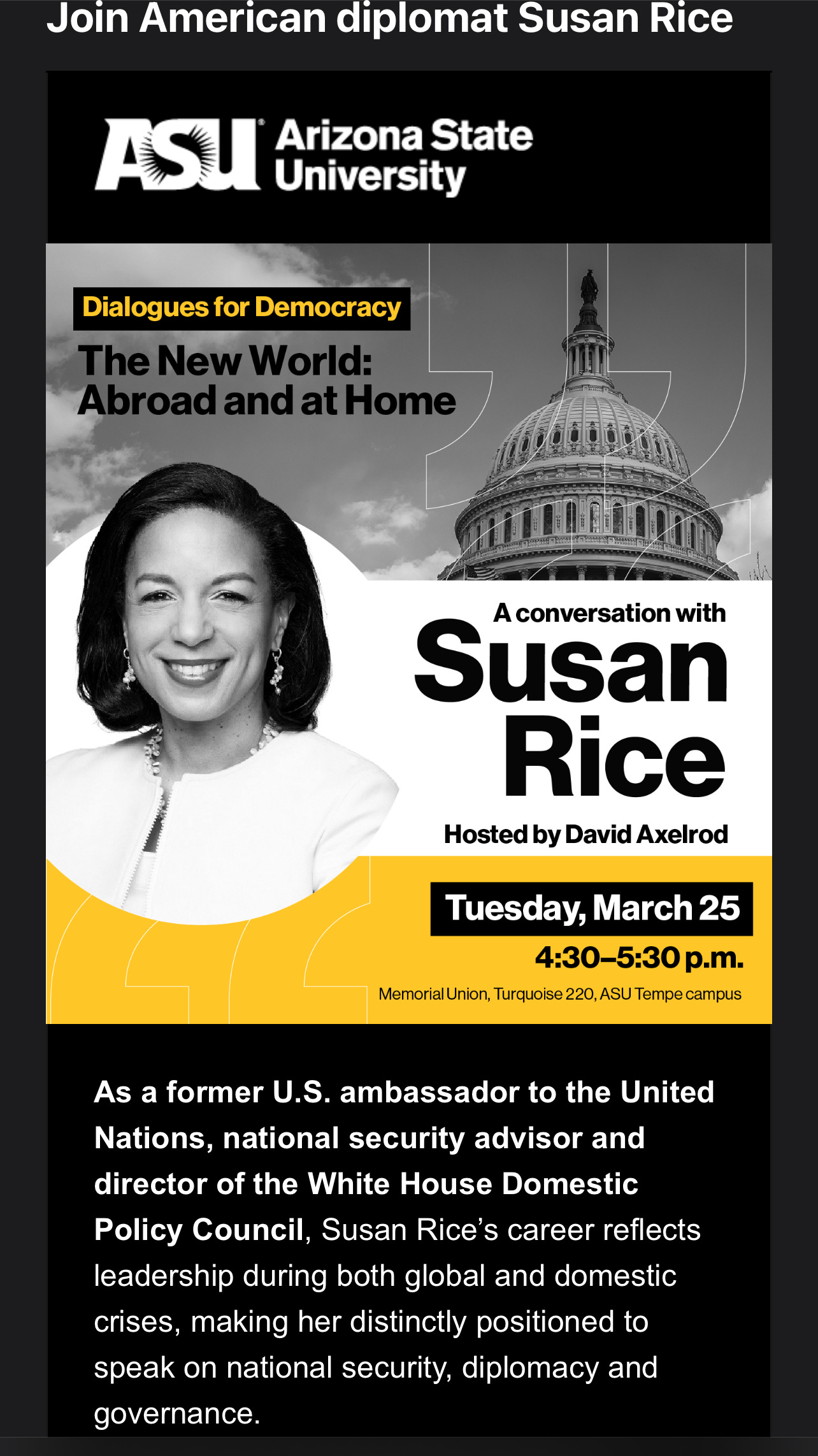What would you do if your boss made their political views—and who they believe you should vote for—very clear?
If you happen to agree with them, you might shrug and move on. But what if you don’t? What if you hold a different set of political beliefs and vote differently? You’re now in an uncomfortable position. You know, even without anything being explicitly said, that disagreement could cost you—maybe not immediately or in a way that breaks employment law, but in subtler ways: missed opportunities, strained relationships, unwelcome scrutiny, investigations into your social media posts.
That’s called a chilling effect—the kind of pressure that leads you to say, “I’ll just stay quiet. It’s not worth the risk.” And it’s the kind of environment increasingly facing conservative faculty across American universities, including at Arizona State University, where I teach.
A Provost’s Endorsement
Recently, I received an email from ASU’s Provost—the top academic officer of the university and the person responsible for hiring, promotion, and the overall intellectual direction of our faculty. The email announced that Susan Rice, former National Security Advisor under President Obama, would be coming to speak at ASU. The event is being organized as a public conversation between her and David Axelrod, also from the Obama administration.
Let me be clear: universities should absolutely host high-level officials from across the political spectrum. That kind of civic engagement is part of our mission. Students should hear from those who have shaped national policy at the highest levels.
But that’s not what’s happening.
Instead, what we see—over and over again—is a carefully curated lineup of speakers from one side of the political aisle. Take a look at the past several years at ASU. You will find big-name figures like Hillary Clinton getting paid large sums of money to speak. You might find an anti-Trump conservative but even those are rare. What you won’t find is a single high-level official from the first or second Trump administration invited to speak—much less paid to do so.
Where is Pete Hegseth? Where is Mike Pompeo, Michael Waltz, Tulsi Gabbard or any other cabinet-level or senior policy figure from the Trump administration? These are high-level officials, whether one agrees with them or not. And if the standard is “important national leadership,” then they easily qualify.
But that’s not the real standard.
The Message Behind the Message
What the university community hears, especially those of us who do not share the prevailing political outlook, is this: your ideas are not welcome here. We are willing to pay large sums (and yes, we should ask how much Susan Rice is being paid) to host progressive political leaders, but not their conservative counterparts.
This has consequences.
As a conservative professor, I’m now left to wonder: will I face retaliation for expressing political views outside of work? Will my writing, my public speaking, or even my personal affiliations and social media posts, be used—officially or unofficially—as reasons to question my professionalism or collegiality?
These are not paranoid questions. They are the natural result of a workplace where leadership repeatedly signals ideological alignment with one political side.
And so, like many others, I have to consider self-censorship. Not because I’m ashamed of my views, but because the power imbalance is real. And those who disagree with the university’s political orthodoxy know that disagreement can carry consequences.
A Call for Intellectual Fairness
This isn’t a partisan complaint. It’s a call for intellectual fairness. If universities want to maintain credibility as places of open inquiry and debate, they cannot function as extensions of one political ideology. They must be willing to host—and even equally pay—speakers with a broad range of views. That includes those with whom faculty or administrators may personally disagree.
Otherwise, the chilling effect will only deepen. And the university will no longer be a place where students learn to think for themselves. It will be a place where they learn—carefully, quietly—not to say what they think.





Ate you tenured? Does that offer a measure of protection?
This is so obvious that I don’t comprehend how people can’t see it.